Do you dread opening the electricity bill each month? What should you be doing differently to conserve energy and save money without spending more cash on green gadgets or sacrificing your comfort? Here are 30+ foolproof ways on how to save money on utilities.
1. Set the thermostat correctly
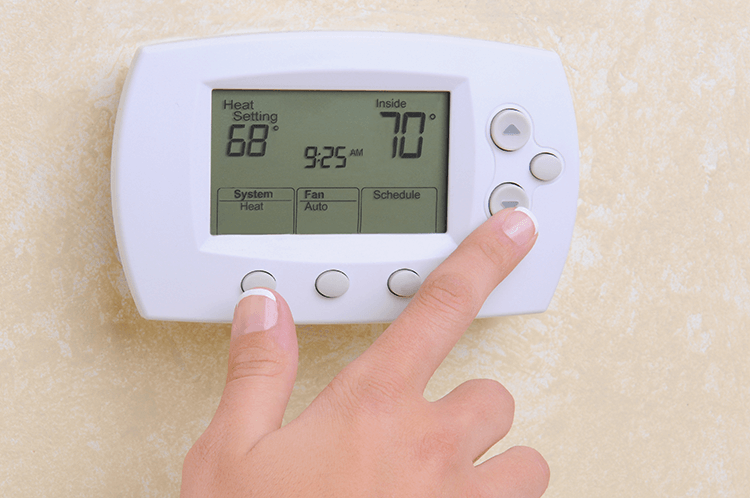
During the winter, heating the home accounts for more than 40% of your overall energy costs. Reduce this value by setting the thermostat between 64 and 68 degrees. This range is still comfortable, and any degree above this will increase your heating bill unnecessarily.
During the summer, set your thermostat to around 72 to 74 degrees and above to save energy. Better yet, invest in a programmable thermostat that switches off the heater or cooler when you are not home.
2. Turn off systems that are not in use
If you have a central heating and cooling system, there is no need to keep it on in all the rooms. Close off vents in parts of the house that will not frequently be in use. For room-based systems, always switch off the heaters and coolers when you leave the room. This action will significantly reduce your heating and cooling costs throughout the year.
3. Insulate the roof
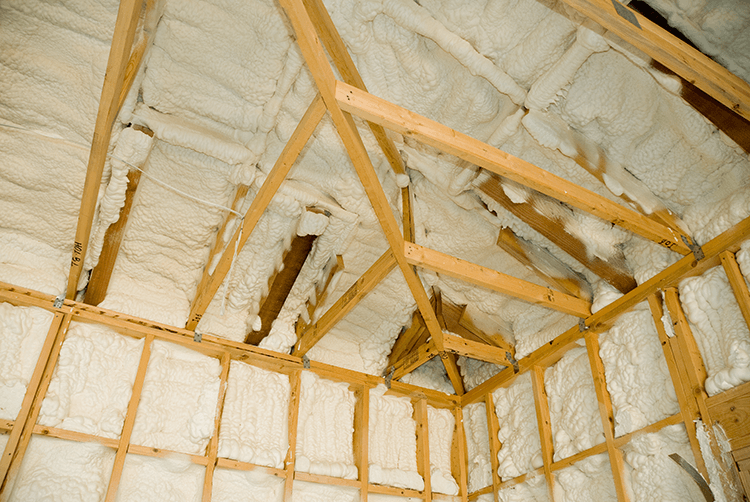
If you only insulate your ceiling, you will lose a significant amount of your home’s heat/cooling through the roof. An insulated roof and attic space will make a significant difference to your energy bills. Invest in insulation for the roofing system and ensure that it is well ventilated to prevent moisture problems as well.
4. Invest in ceiling fans
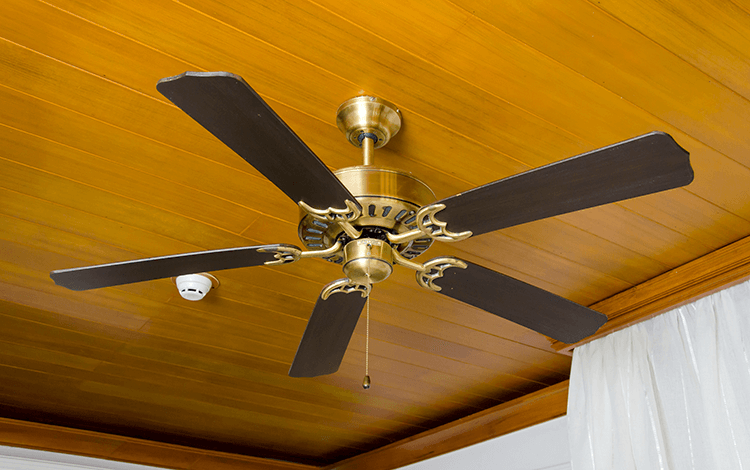
Ceiling fans are efficient in circulating cold or warm air throughout the home. Run the ceiling fans on clockwise during the summer and counter-clockwise during the winter.
5. Insulate the garage and crawl spaces
Is your entire home insulated? If not, it may be time to consider taking this measure for energy conservation. Covering the garage, garage door, and crawl spaces can save you hundreds of dollars in energy costs. Insulation also improves the soundproofing properties of the home.
6. Seal and insulate ducts
Most homes lose an average of 20% of their home’s heat through the duct system. If the ducts are not insulated or sealed, they lose heated and cooled air to the outside and decrease the efficiency of the HVAC system. Save energy by having your ducts inspected. They should be sealed and insulated as well to maximize the system’s efficiency.
7. Check insulation R-values
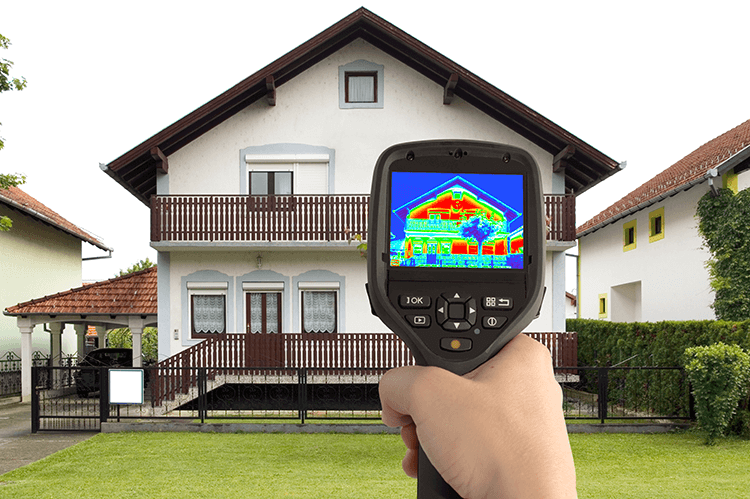
Different insulation materials have different rates of thermal resistance. This means that the amount of energy saved differs based on the material’s R-value. Insulation materials with high R-values perform better than their counterparts with lower R-values. When shopping, go for materials with high R-values to maximize energy efficiency and prevent heat loss through the roof, attic, crawl spaces, and the basement.
8. Use refrigerator effectively
The refrigerator is one of the appliances that consume a lot of power in the home. You can reduce this by ensuring the door is always closed properly. Also, if you have a separate freezer and refrigerator, switch off the freezer when it is not in use. This will save you significant amounts of energy every day.
9. Clean the furnace filter
Your heating system’s furnace filter traps dirt and debris. If the dust accumulates, it can clog the component and cause the furnace to run harder and inefficiently. Avoid this by cleaning the filter regularly to eliminate clogs. This will save energy and also keep you from dealing with broken components of your heating system.
10. Use energy efficient lighting fixtures
Light bulbs, lamps, and other lighting fixtures are high energy consumers in the home. Invest in energy-saving bulbs to reduce the amount of electrical power used in lighting. Also, ensure that lighting fixtures in empty rooms are switched off. Don’t leave any lamps on at night, except those used for security lighting.
11. Use lighting control devices
Lighting control devices provide light only when it is needed and save energy. They include motion sensors, occupancy sensors, timers, and photocells. Using a few of these in your home can reduce the amount of energy used in lighting the indoor and outdoor spaces.
12. Dust lighting fixtures
Lighting fixtures accumulate dust over time. The dirt can block up to 50% of the light produced by the device, and this can prompt you to add more lighting fixtures. Instead, dust your bulbs and lamps regularly to get rid of the dust and increase their efficiency.
13. Decorate with soft tones
Pales colors with soft tones reflect light and reduce the need for bright light. If you are redecorating, consider using soft tones for the walls, ceiling, and floors. This will allow you to use low-wattage lighting and delay switching on lights until later in the day.
14. Save energy while cooking
Leaving pots open on the stove increases your cooking time significantly. The same case applies if you keep on opening the oven door when baking. Keep the lids on your pots when cooking to reduce cooking time and save energy. Also, thaw food in the fridge to avoid using the electric microwave for the same. Set the oven timer when baking and avoid opening the door as this causes heat loss and increases energy consumption.
15. Use small kitchen appliances
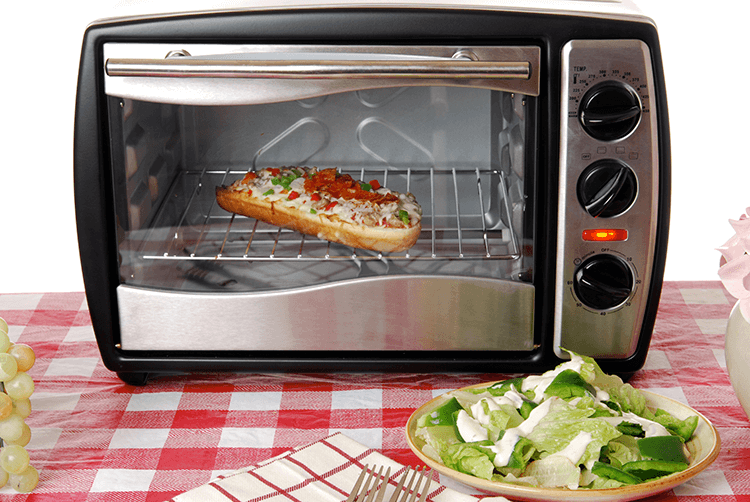
Large appliances consume a lot of energy in the kitchen. For example, the amount used in heating or grilling using the oven is higher as compared to using a sandwich maker, microwave, or slow cooker. Invest in small devices and save up to 70% of the energy lost when using large kitchen appliances.
16. Load dishwasher efficiently
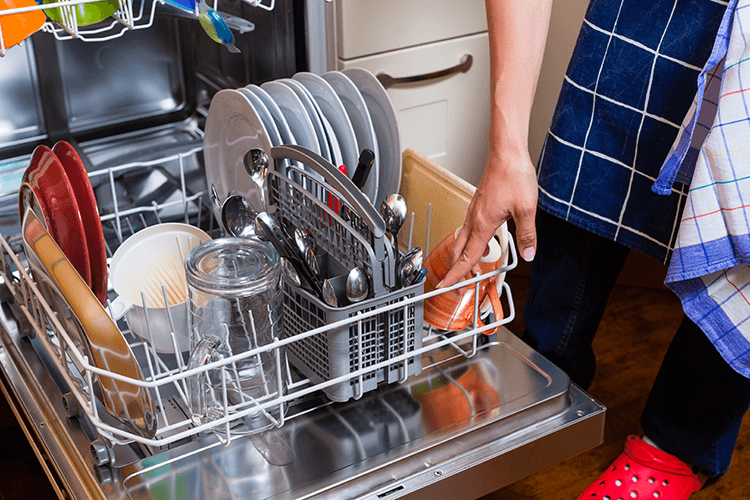
The dishwasher is one appliance that consumes a lot of energy in the kitchen. Ensure that you load it correctly to save energy. Never run it on half-load as this will reduce energy efficiency. If you can’t achieve a full load and don’t want to leave the kitchen with piled dishes, it may be a good idea to hand wash them in the sink instead of wasting electrical power.
17. Use the washing machine effectively
Do not use hot water in your washing machine unless it is necessary. The process of heating the water will increase your energy costs. Instead, use cold water to save energy. Also, select short washing cycles and wait till you have a full load to wash so that you can reduce the number of times you use the appliance in a week.
18. Do your laundry at night
Many utility companies have plans that offer discounts for power usage during the off-peak hours, usually after 8 PM in most states. If you can switch most of your energy usage to this period, you will save a lot of money. One thing that you can do during off-peak hours is laundry. Doing your laundry during the off-peak hours can significantly reduce your annual energy bill.
19. Don’t dry clothes in the dryer
Drying clothes in your dryer may seem convenient, but it uses up a lot of energy. Consider taking out clothes while they are still damp and hanging them to air dry instead. Remember, they don’t have to be dripping wet but damp. This will save you energy and prevent wrinkles and shrinkage.
20. Watch your window treatments
Window treatments can help you conserve energy in the home. During the summer, make use of sheers and light blinds that do not trap heat in the house. This will save you from running the air conditioner throughout the day or night. During the winter, switch to heavy curtains that help in warming up the home so that you don’t have to set the thermostat too high.
21. Dress for the season
Is it hot or are you the one stuffed in clothes? Learn to dress for the season to avoid overusing the heater and cooler. Wear light clothes during the summer and keep warm during winter. You will end up saving more energy this way and also avoid contracting seasonal illnesses.
22. Open windows during the summer
Sometimes all you need is to keep the windows open and let in fresh air instead of running the air conditioner. If you have security screens, you don’t have to worry about bugs entering the home. Open the bathroom windows when taking a shower to let out the heat from the bathroom and prevent your AC from overworking in a bid to remove the extra heat and moisture from the bath.
23. Place lamps away from AC
Placing lamps, TV sets, and other appliances that emit heat near your AC can cause energy wastage. This is because the unit senses temperature around it and works harder to eliminate it even if the rest of the room is not hot. To avoid this, always place appliances that produce heat away from the AC unit.
24. Clean the HVAC’s compressor unit
The compressor of your HVAC system is outside the home. If dirt and debris clog its vents and coils, the unit can end up overheating, reducing the efficiency of the indoor unit, and failing altogether. Clean the compressor regularly to prevent the build-up of dirt. This will allow it to dissipate hot air from your home and maximize the efficiency of the entire system.
25. Turn down your water heater
Is your water heater set to very high temperatures? If so, it could be a culprit of energy loss in the home. Prevent this by setting it to a comfortable temperature that’s not too high. You will end up saving at least 10% of the energy consumed in the home and also prevent scalding in the shower as a result of high water temperatures.
26. Go tankless in the shower
If you still use the traditional tanked heating system for your shower, it may be time to go tankless. Heating tanks lead to energy loss as they have to keep the water hot at all times. On the other hand, the tankless system heats water on demand and saves significant energy as a result. It also provides a steady supply of hot water as compared to a tank system which can run out of hot water after one or two showers.
27. Insulate your water heater
Do you still have the traditional water heater? If so, add an insulating blanket on top of it to reduce heat loss to the environment. This will keep water hot for long and reduce standby heat losses by up to 30%-40%. It will save you up to 10% in water heating costs in the home.
28. Install a water-saving showerhead
A low-flow showerhead can reduce your bathroom’s heating costs by up to $250 per year. Remember, the more the water that your showerhead dispenses, the more the energy is used to heat it. Don’t worry about water pressure as a low-flow showerhead will not affect it. Instead, it will help reduce water wastage and heating costs in the home.
29. Fix leaky faucets
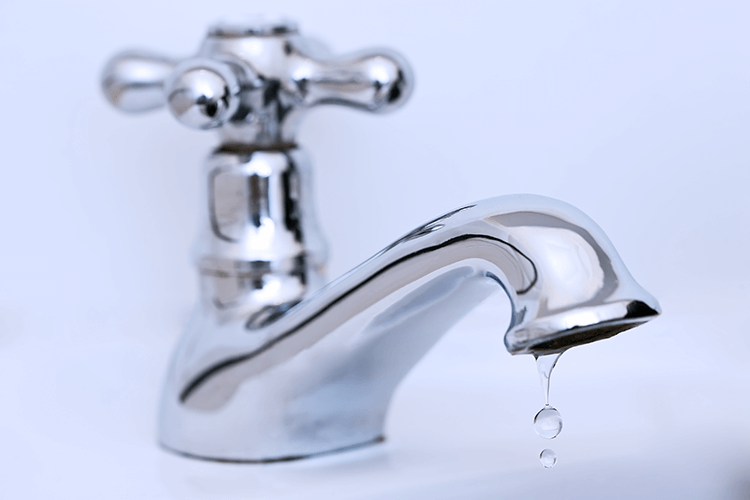
Leaking hot water faucets can increase your energy costs and water consumption by a great deal. Conduct a plumbing inspection and fix any leaking faucets in the home. This can also prevent mold growth that occurs as a result of moisture on the walls and around plumbing pipes.
30. Unplug unused electronics
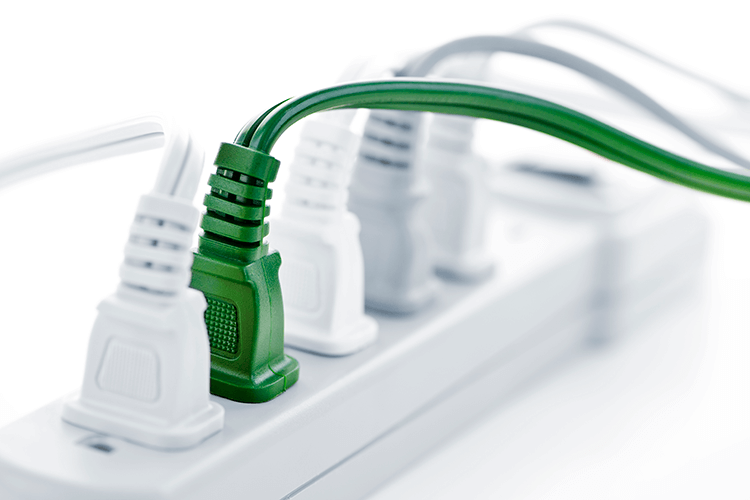
Leaving your PC on the whole day can cost you up to $75 annually. This figure goes up if you include the TV, phone chargers, and other unused devices. Unplug electronics that are not being used during the day or night to save energy. The standby power saved can significantly lower your home’s energy bills.
31. Keep the garage door closed
During the winter, the garage door can frustrate your efforts of keeping the home wall. This is because the home will be losing heat to the garage since most garages share a wall with the main house. Keep the garage door closed at all times to prevent heat loss. Ensure that the door has insulation and the weather stripping is in excellent condition to avoid snow and water from entering the garage.
32. Waterproof the basement
Insulating your basement is a worthless move if the room is not protected. If water wets the insulation material, it will reduce its efficiency in preventing heat loss. Make sure that your basement is adequately waterproofed to avoid heat loss. This will also protect the structure from foundation issues that result from a flooded basement.
33. Landscape wisely

Energy savings is not all about household appliances and systems. Your landscaping techniques can also help in reducing energy costs in the home. For instance, if you plant a leafy shade tree to the south and west, you can reduce the home’s cooling costs by up to 20%. Place evergreen trees to the north for maximum energy efficiency.
34. Invest in energy-saving appliances
Consider the energy rating of new devices before making a purchase. For maximum benefits, go for appliances with the Energy Star qualification label.
This means that the appliances have an energy efficiency guarantee. Consider the guarantee when shopping for all devices, from large ones such as fridges, dishwashers, and washing machines to small ones like light bulbs.
Reducing the energy costs in your home requires a total overhaul of the entire house. I hope these tips allow you to have a more energy-efficient home and learn how to save money on utilities.
You can conduct an energy audit in your home to identify areas of energy loss and find ways to maximize efficiency.


